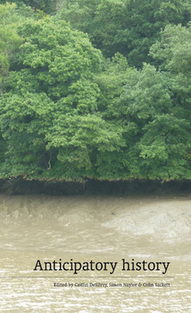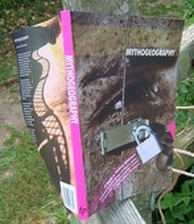Anticipatory History
Anticipatory history asserts that the stories we tell about our history (whether it's the history of people or landscape or ecology or language for example) shape our perception of what might be called future 'plausibilities'. Talking of the move to cull rats on Lundy island (off the West coast of England), anticipatory history notes that the 'scientific evidence' for culling rats to protect puffins is neither objective nor value free. In fact, there are numerous moral decisions involved in deciding to:
Reviewing the book, Anticipatory History, on the Mythogeography website, CrabMan (Phil Smith) has this to say: "Anticipatory History folds apocalyptic-thinking back on itself, re-locating loss of species, erosion and climate change to the past as much as the future, while challenging ideas of stability and constancy curled up inside conservation and retreat, pointing to the dynamism that has moulded places that are valued and defended. Against permanence and for process, ‘anticipatory history’ proposes itself as better equipped for future changes, responsive without regret or lament, telling stories (while discussing their effects) about specific, vibrant and volatile landscapes and about future ‘plausibilities’ for their adaptation to sustainable futures." References Anticipatory History Mythogeography - reviews page |
Explore |



